Best SEO tools for ecommerce marketers in 2022

Search Engine Optimization is a huge function of marketing for any business. But SEO for ecommerce is an entirely different giant.
Smaller brands have to go head to head against massive brands, and trying to rank for a keyword phrase like “mens long sleeve athletic shirt” against Under Armour and Nike is no small feat.
What is SEO?
Search Engine Optimization, commonly referred to as SEO, is the practice of writing content to show up on search engine result pages, such as Google, to drive relevant organic traffic (aka unpaid traffic) to your website.

Put very simply, SEO specialists work to uncover the words and sentences internet users input to a search engine - called keywords or keyword phrases - to find answers to a question or problem. They then analyze the search engine result pages (SERPs) to determine what kind of content Google, Bing, or other search engines see as an ideal format of an answer. They then try to write copy (marketing jargon for content) that better addresses the potential audience’s search intent to ultimately outrank the current best-performing pages.
All in all, SEO is a competition between peers that asks a wide set of questions, including but not limited to: Who can write better? Who answers a given question most holistically? Who do more people (aka other sites) trust on a given subject? Who are people currently talking about? Who can prove what they’re saying is true? Who can engage the right people? Who can keep people on their site the longest? Who has more content on this subject than anyone else?
What makes SEO difficult?
For me, the most interesting part of working in SEO has always been having to constantly overturn my knowledge of ranking tactics and learn the new emerging best practices.
With constant algorithm changes, new competitor content popping up, and an ever-changing keyword landscape, SEO experts need to always be on their toes. Which is something I personally enjoy.

Unfortunately, keeping a finger well on the pulse is incredibly time consuming, and while learning new tactics is great, these tactics actually have to go into practice… Meaning us SEO folk absolutely need help wherever we can find it. Search engine optimization tools fill in that need in a variety of ways, depending on the software, by streamlining research processes, providing writing and copy tips, making competitor analysis faster and easier, and amalgamating SERP features.
The ecommerce SEO tools worth looking into
Now, there’s a massive spread of Search Engine Optimization softwares and tools on the market today… And not all are as useful as the others. Below I will give you a brief walkthrough of the tools that either I’ve tried and would recommend, or tools that my ecommerce peers have tried and suggested in the past.
Ahrefs
Ahrefs is an all-in-one SEO toolset and one of the largest website crawlers online today. Helping marketers rank on Google, the software provides tooling for full site audits, competitor analysis, rank tracking, keyword research, and link building.
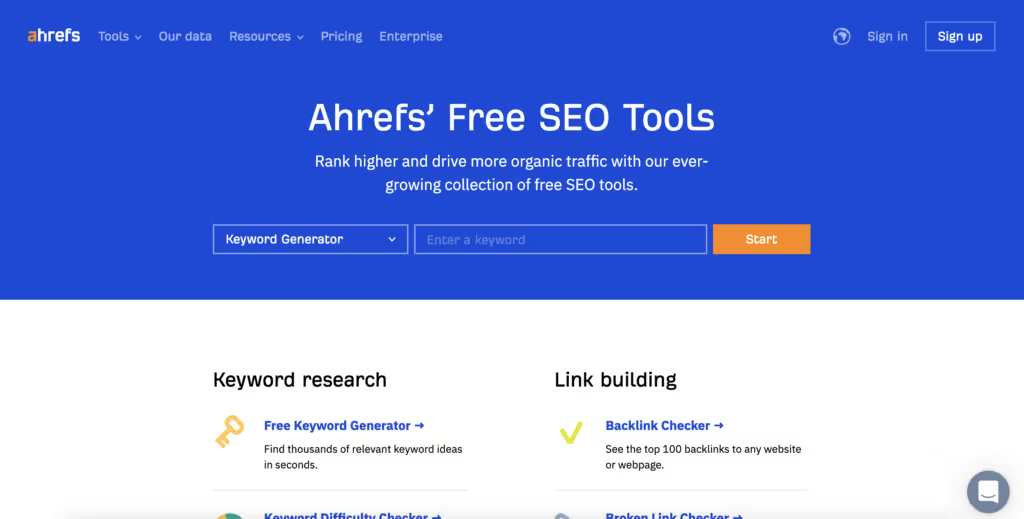
Ahrefs top tools
Site Explorer
Site Explorer provides a view into any site’s backlink profile and search traffic. This tool can be used for both competitor analysis or for analyzing your site’s current state.
Keywords Explorer
Keyword Explorer uses Ahrefs’ industry-leading database to find winning keyword ideas to rank on Google, Youtube, and Amazon.
Site Audit
The Site Audit tool examines your site for technical SEO issues and can provide a view to your SEO improvements over time.
Rank Tracker
As the name suggests, the Rank Tracker tool is dedicated to monitoring your ranking progress on both desktop and mobile.*
Content Explorer
The Content Explorer portal helps marketers find new link opportunities and new content ideas by finding the most relevant and viral content being shared on social media platforms in your niche.
*Did you know: Google is now prioritizing by Mobile-first?
SEMRush
Marketed as an online visibility management and content marketing SaaS platform, SEMRush stands among the most popular and widely recognized SEO softwares. Providing 50+ tools that bring in keyword data, ranking positions, backlinks, anchor text, and more to help all marketers—not just ecommerce marketers—do their job more efficiently, SEMRush helps companies grow their organic traffic, create content that ranks, uncover competitor strategies, and discover new advertising avenues.
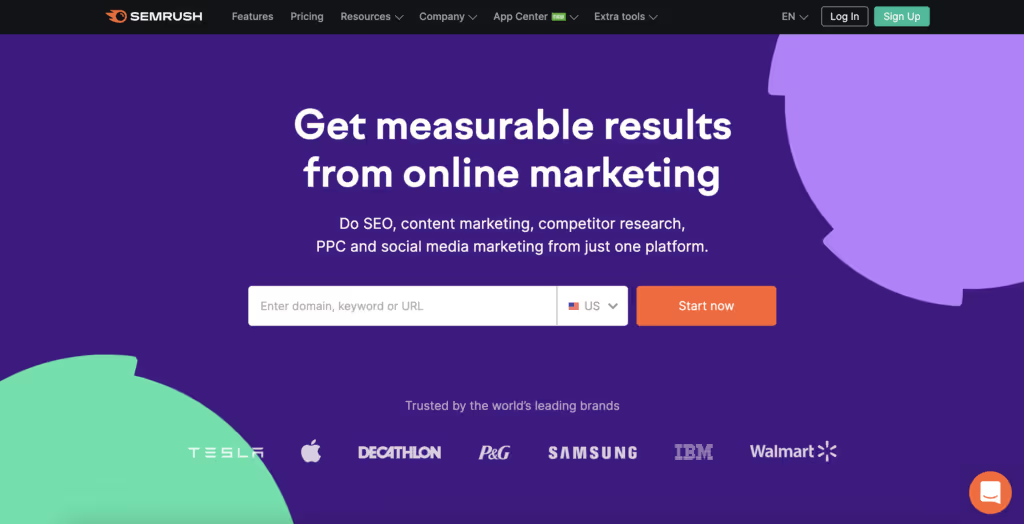
What is interesting to note about SEMRush for ecommerce professionals: The platform has specific functionalities built to address Local SEO. This functionality is not always a given in other SEO tools.
Functionalities for SEMRush local SEO
Listing management
Have your business data distributed to relevant authoritative directories and monitor reviews, while also following your local ranking progress with ZIP code granularity.
Position tracking
Monitor daily performance by keywords and devices and compare with your competitors’ domains.
On-page SEO checker
This tooling will provide you with strategy ideas based off of competitors and your own already high-ranking landing pages; backlink ideas and opportunities to increase your URL SEO score; technical SEO fixes; UX suggestions; and SERP feature ideas.
Social media toolkit
Post and schedule updates to your online channels including your Google Business Profile.
Moz Pro
As mentioned previously, there are a handful of Google algorithm updates every year and despite that, Moz Pro always seems to be up to date which has led to it becoming a fan favourite. While it is an all-in-one software covering everything from link and keyword research to custom reporting, fellow marketers tend to highlight the following 3 tools when raving about what Mox has to offer: Moz Keyword Explorer, Moz On-Page Grader, and Moz Pro Link Explorer.
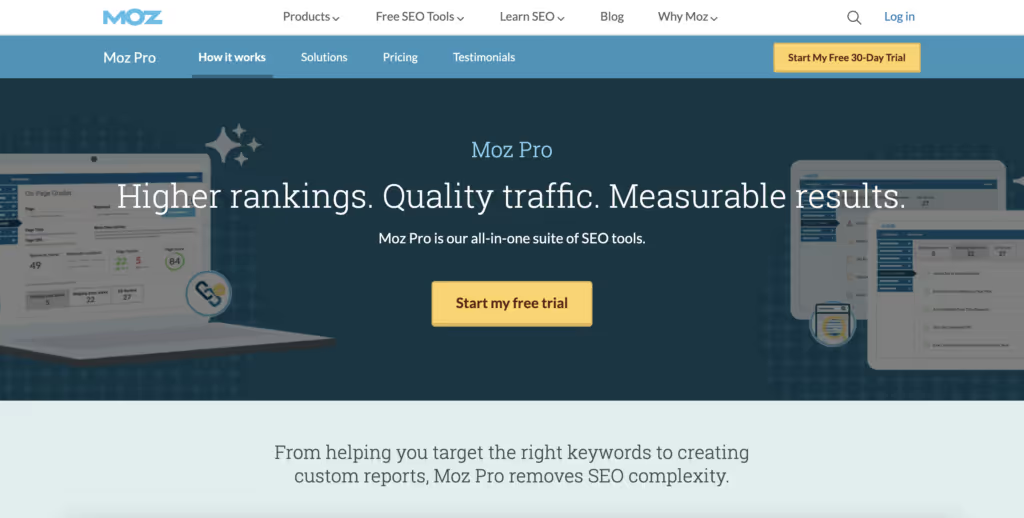
Moz Pro tools of note
Keyword Explorer
Keyword Explorer uses a formula to calculate keyword difficulty using page and domain ranks, authority scores, and competitor stats.
One-Page Grader
The On-Page grader assigns a letter grade to a specific url based on the page’s quality and relevance in addressing your desired keyword.
Link Explorer
Moz’s Link Explorer uses machine learning to mimic Google’s indexing bot. This helps marketers compare link profiles, Spam scores, and identify new link prospects to go after.
UberSuggest
Straight from the mind of industry expert Neil Patel, Ubersuggest is a free keyword finder tool to uncover new keywords and, quite importantly, the intent behind each one. The tool helps SEO writers decide how to structure their copy by showing the top ranking pages for SERPs for both short and long tail target keyword phrases.
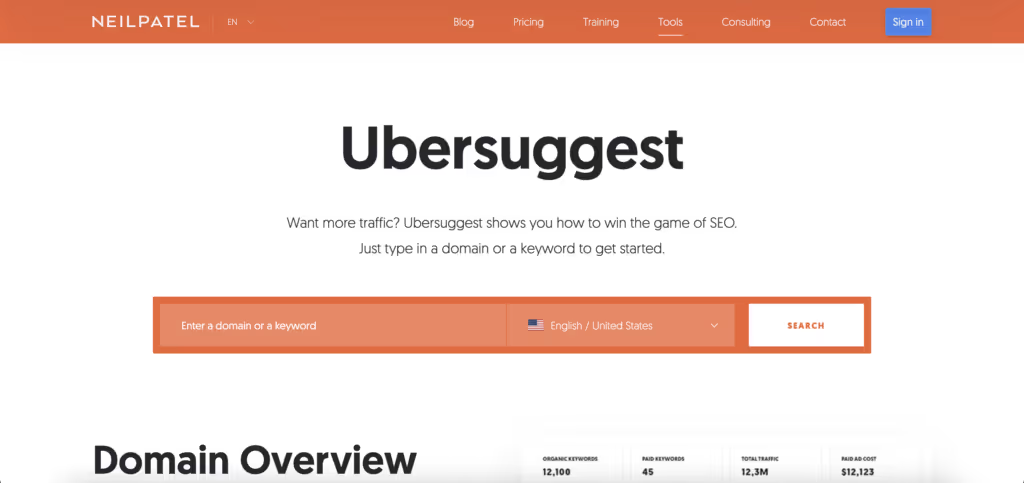
What else does Ubersuggest give marketers
Domain overviews
Backlink data
Content ideas
Keyword suggestions
Mobile and desktop rank tracking
Answer The Public
ATP is one of the coolest apps in the SEO landscape. While it’s not a fancy all-in-one tool, Answer The Public does something truly amazing: it provides you with all the questions being searched in relation to your target keyword.
Imagine, you plug in the keyword you’d like to rank for, and all of the questions internet users have input into the search bar to come to that keyword SERP is displayed for you.

Personally, I like to use this tool to get blog header ideas… So far? It’s been working.
Screaming Frog
Scream Frog is a great tool if you’re looking to analyze and improve upon your site’s technical SEO health. Surfacing duplicate content, site errors, bad redirect links, and link building opportunities at lightning speed, their SEO Spider tool is considered the best feature by top SEO experts.
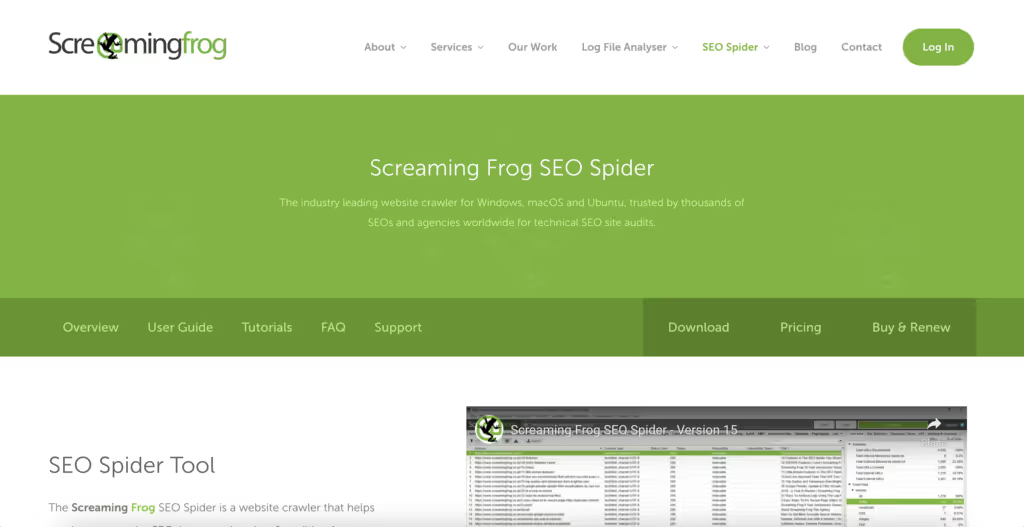
There are both free and paid versions of the tool. Of course, the free version does not give users full access to the configuration, crawl savings, or advanced features, and it does limit the number of URLs per singular crawl (maximum 500 urls).
Additional insights surfaced by Screaming Frog
Duplicate Title tags
Missing Alt tags
301 Redirects
All insights can be exported to an Excel spreadsheet for easy actioning.
Keywords everywhere
Keyword Everywhere is a Chrome and Firefox extension that aggregates data from a multitude of existing Google SEO tools such as Google Analytics, Google Search Console, and Google Trends. The extension displays monthly keyword search volume, CPC, and competition data right on the Google results page, helping you find the best keywords to rank for and helping your team formulate blog topic ideas.
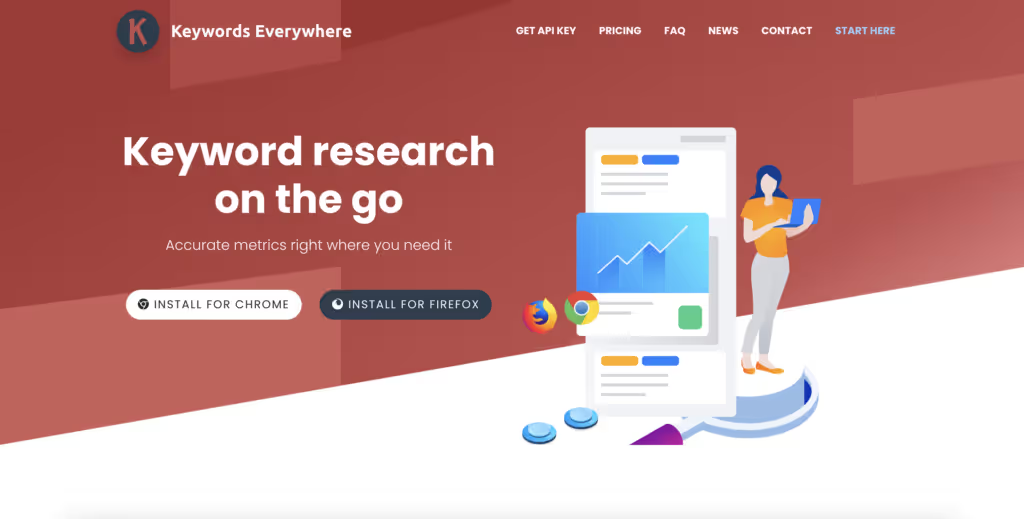
The extension also allows marketers to upload a bulk list of keywords to see more accurate data which Google now keeps behind extensive ranges unless you pay for an Ads account.
Raven tools
A technical SEO-focused software, Raven Tools provides site audits, rank tracking, marketing reporting, backlink tooling, link building management, and competitor research functionalities. The software is available in 2 versions: Raven Reimagined and Raven Classic.

SEO marketers specifically point to Raven’s Link Manager tool as a major asset. Simply put, the Link Manager helps businesses analyze active and inactive links, link anchor texts, and backlink domains.
Optimizely
Optimizely is primarily a digital experience platform, though has some fantastic SEO-based toolings for marketers to take advantage of, especially for in-depth site analysis and backlink control.

Optimizely features for ecommerce marketing
Server-side testing
Sitemaps and Robots.txt management
Personalization
Content recommendations
Media management
Helium 10
Trying to get ranked on Amazon product pages? Helium 10 is an absolute must.
Unlike the tools mentioned above, Helium 10 is built specifically for ecommerce businesses that sell on Amazon.
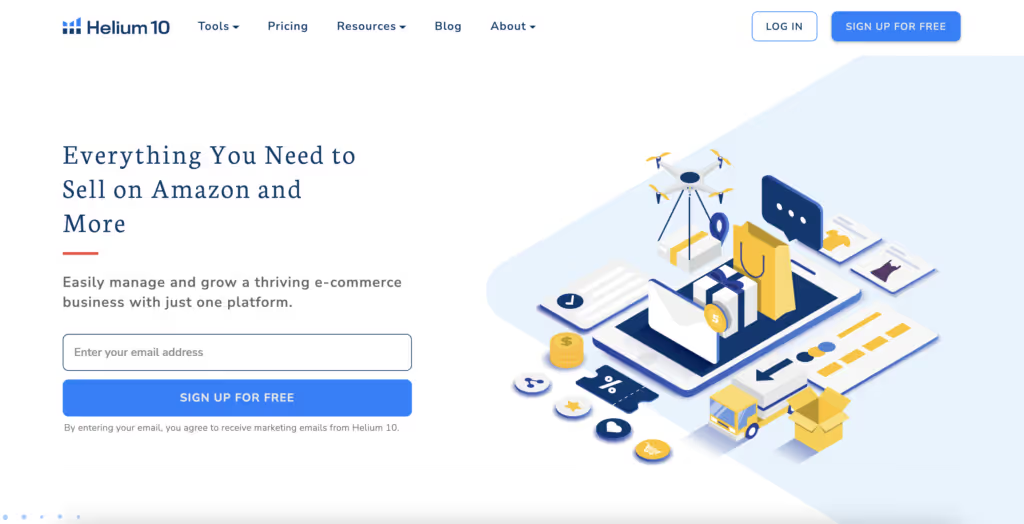
With Amazon having such a domination over the marketplace, Helium 10 was developed to help other professionals capitalize off of the Amazon opportunity. Offering tools to help ecommerce marketers conduct comprehensive product research, data analytics, and keyword research, the software has been instrumental in helping brands successfully get their products in front of the right customers.
Featured Helium 10 tools of note
Magnet
Helium 10 boasts that their keyword research tool, Magnet, has the largest database of actionable Amazon-related long and short-tail keywords. Unfortunately, users on the free plan are limited to 2 keyword searches per day.
Listing Analyzer
Evaluating a brand’s product titles, descriptions, images, review counts, and comparing against those of already high-ranking competitors, the Listing Analyzer tool gives users immediate recommendations for areas of improvement for their product listings.
Trendster
Trendster gives users a view into seasonality trends and price fluctuations over time, helping determine whether or not a product will have a steady stream of year-round business, or if the seller should expect demand fluctuations.
Scribbles
This functionality is designed to prevent users from accidentally missing important keywords in their product listing. Automatically checking off used keywords in a focused list, related keywords that are missing will be highlighted. Scribbles also takes into account the different text field lengths available to different categories on Amazon, and can be set up to address each accordingly.
Attracta
Attracta’s award-winning managed SEO services have helped countless SMBs and ecommerce stores increase their SERP ranking and drive more organic traffic to their sites. With over 1500 hosting partnerships, Attracta builds up backlink profiles and updates and submits your sitemaps to the top search engines. In fact, Attracta’s sitemap creation tool pushes more than 100 million page updates on Google every day.
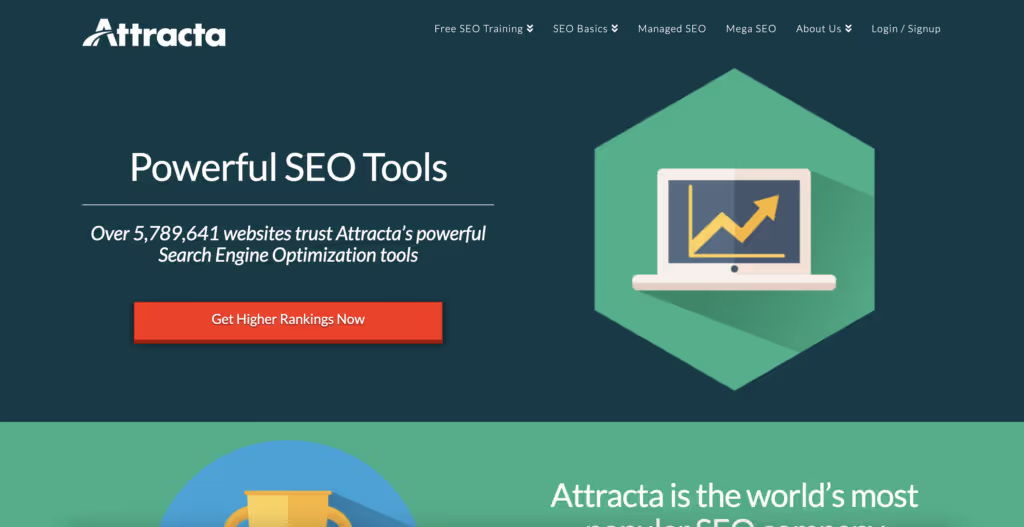
While they are best known for the premium managed services, they do offer tools for teams that prefer to take SEO into their own hands. For those that want to do their SEO in-house, the software provides tooling for technical audits, content generation, keyword analysis and optimization, title and meta tag creation, link building, and ranking reports.
Their most helpful offering for ecommerce folks? Local SEO Orders.
Attracta’s local SEO orders
For $45, ecommerce managers can contract Attracta to perform local SEO optimizations in their target area. With 25 local directory listings and authority to the Maps results, this service order is open to international brands as well.
And finally...
The entire Google Suite
This includes, but is not limited to:
Google AdWords Keyword Planner
And Incognito mode! Chrome remembers your search history, so when you’re doing some recon on Google SERPs, use incognito mode to get a better idea of what naturally comes up on any given results page, without Google trying to serve you a tailored content view.
...
So, I’ve made some suggestions. Time for you to make some decisions.

Have any other SEO tooling suggestions? Send me a message at katya.zeisig@noibu.com and let’s chat!




